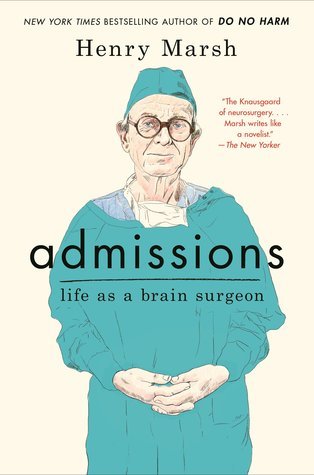More on this book
Community
Kindle Notes & Highlights
by
Henry Marsh
‘Neither the sun nor death can be looked at steadily’
‘We should always, as near as we can, be booted and spurred, and ready to go…’
I like to joke that my most precious possession, which I prize above all my tools and books, and the pictures and antiques that I inherited from my family, is my suicide kit, which I keep hidden at home.
Attempted suicides are often viewed by hospital staff with scorn and condescension – as failures in both living and dying, and as the agents of their own misfortune.
When you are feeling fit and well, it is relatively easy to entertain the fantasy of dying with dignity by taking your own life, as death is still remote.
Apparently, in countries where so-called doctor-assisted suicide is legal many people, if they have a terminal illness, having initially expressed an interest in being able to die quickly, do not take up the option as the end approaches. Perhaps all that they wanted was the reassurance that if the end was to become particularly unpleasant, it could be brought to a quick conclusion and, in the event, their final days passed peacefully. But perhaps it was because, as death approached, they started to hope that they might yet still have a future.
As death approaches, our sense of self can start to disintegrate. Some psychologists and philosophers maintain that this sense of self, of being coherent individuals free to make choices, is little more than a title page to the great musical score of our subconscious, a score with many obscure, often dissonant voices. Much of what we think of as real is a form of illusion, a consoling fairy story created by our brains to make sense of the myriad stimuli from inside and outside us, and of the unconscious mechanics and impulses of our brains.


